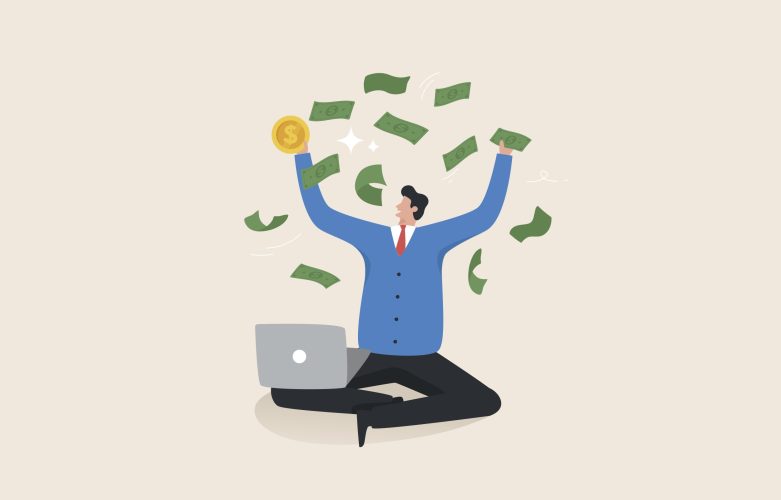If you want to get on the right track to financial health and stability, but keep seeing your money going down the drain, then read the following 4 tips to make the most of your money.
1) Get out of debt first
If you want to start making the most of your money, the very first thing you should focus on is getting rid of any debts you might have. It’s only once you get rid of your debts that you will be able to do what you want with all of your sources of income.
When you’re in debt, you usually always have to pay interest on that debt. All that money that you are spending on interest could be used towards your financial goals. It can be put towards your savings, an emergency fund, vacations, a new home, a new car, a baby, or even towards your retirement.
So instead of only paying the minimum payments on your debts, focus on putting more towards it so that you don’t waste more money in the long run.
Don’t know how to even begin paying off your debts? There are a couple of ways you can go about this:
- The first is the snowball method. This consists of focusing on paying off the smallest debt first regardless of how high the interest on that debt is. It’s a good way of keeping you feeling motivated, because you’ll find yourself seeing results faster. It builds momentum.
- The second option is the one that makes the most sense financially: the avalanche method. This involves paying off the debt with the highest interest first. This method allows you to save tons of money in the long run, because you’ll be paying less in interest than the snowball method. It might take you a while to really see that you’re making a dent in your debts, though.
2) Create an Emergency Fund
Another great way to ensure you’re making the most of your money is to build an emergency fund. That’s because everyone has to deal with unexpected expenses at one point or another. If you’re already making every penny count without an emergency fund, what money are you going to use if you face an unexpected expense? Your credit cards? Your savings?
Having an emergency fund means keeping all of your accounts in order. It’ll ensure that you’re not putting yourself through debts or dipping into the savings you’ve worked hard to earn.
Wondering how much you should set aside for your emergency fund?
Rule of thumb suggests that you should set aside between three to six months’ worth of income towards your emergency fund. But if that’s not feasible, set as much as you can manage. The rule of three to six months is really in case of big emergencies like job loss. It gives you enough leeway and time to find another job.
3) Set some money aside or invest
After paying off your debts and setting money aside towards an emergency fund, you can really start making the most of your money. You can either start saving or investing it.
Although you might have different goals at the moment, it’s also always a wise choice to put money towards your retirement. Other goals you might want to consider saving for are: travel, education, a downpayment on a house or condo, a car, planning for a child, and/or furthering your education. The reason behind your savings is highly personal. In the end, you save in order to meet your personal financial goals.
Setting aside some money for your savings is important, regardless of your financial objectives. It allows you to track how close you are to reaching your goals and, quite literally, ‘saves’ future you.
Want to grow your money? You should consider setting part of your savings aside for investments. Don’t know where to even begin investing? Go to any financial institution and ask a professional about purchasing a mutual fund. You won’t need to manage it yourself and they’re usually pretty affordable and easy to buy. Otherwise, look into bonds, stocks, annuity, and cryptocurrencies.
4) Start budgeting
Budgeting is crucial for those that want to be financially healthy and successful. But there are other reasons as to why budgeting is so important. Name, a budget:
- Helps you reach your financial goals
- Helps you get rid of debts
- Keeps you accountable in terms of your spending
- Helps you plan for a happy and stable retirement
- Prepares you for emergencies
- Helps you understand where all your money goes
- Relieves stress
In short, a budget is the best thing you can do for yourself. In order to create the most comprehensive budget, you need to first identify and list all of your net income. This can come from you full-time job, your part-time job, benefits, or any side-hustle. Then, once you’ve calculated all of your net income for the month, add up all of your variable and fixed expenses. Subtract your expenses from your income, and see what you’re left with. This is money you can set towards your debts, your emergency fund, or your savings.
There are many different ways in which you can choose to budget. The current most popular budgeting methods are zero-based budgeting (every dollar has its purpose) and the 50/30/20 rule (50% for needs, 30% for wants, and 20% for savings). But in the end, all that matters is that you find something that works for you.
If you realize that you’re spending more than you’re getting, see if there are any ways for you to reduce your expenses or increase your income. If you absolutely cannot find any way of increasing your income or decreasing your expenses and you’re drowning in debts, contact a licensed insolvency trustee. A trustee will help you rid yourself of your debts so that you can live free of that financial burden.


